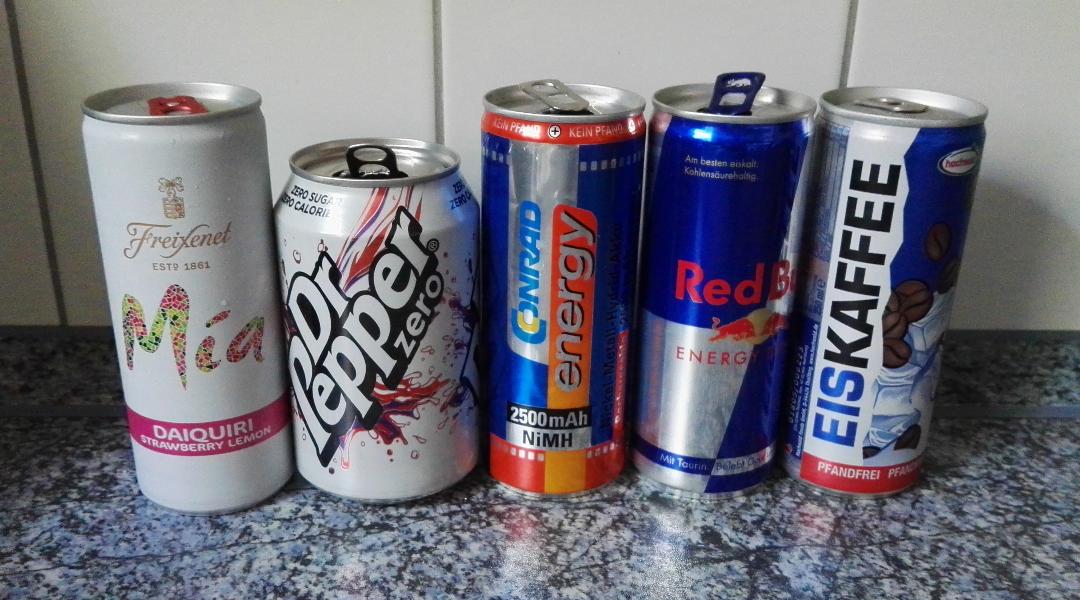When I was younger, growing up in the USA, I would see the occasional bottle littering the street and thought that perhaps if we simply sold all softdrinks in glass bottles with deposits this problem would go away – no more bottles in the streets and less garbage in the landfills.
Wow, a few years later in a different country that attempts to fulfill that dream has really changed my mind against such a solution.
In Germany a lot of drinks are sold with bottle deposits. Rather than having a single coherent policy they initially opted for a jumbled up mishmash approach. The easiest target for such a deposit was softdrinks, energy drinks and beer.

0.25 0.25 0.00 0.25 0.00
If you purchase a softdrink or can of beer you have to pay a 25 cent deposit on the container. When this was initially implemented it was done in literally the worst possible way. You had to keep your receipt and bring both the bottle and the receipt back to the place you originally purchased the drink.
I have no idea how much of a windfall that was for the sellers of such drinks but it must have been fairly large. Who had the time to track where you bought your drink and make a special effort to get back to that part of town (or another town) to get back the deposit all without loosing the receipt.
Fortunately, the law was changed so it was then possible to return the container to any shop that sold that type of drink. It was about this time that machines came to the rescue in the form of bottle return machines.
Simply show up at your favorite grocery store and start to pop those bottles and cans into the machine. A lot of the machines accept cans while some do not – this wasn’t such of a problem for me.
A bigger problem was that not all bottle types can be put into the machines. There are two different types of plastic bottles, single use versus refillable. The refillable bottles are a different type of plastic and much sturdier. Instead of the same 25 cents as the other plastic or cans these bottles have a deposit of 15 cents.
This wasn’t so much a new rate as the rate that has always been used for refillable plastic bottles while refillable glass bottles have always been just 8 cents per bottle.
The exceptions
One of the nice things about shopping in Germany is that when you see some item for sale that costs 9.99, you know that it costs exactly 9.99. The retailers have the labels printed to include the tax that must be paid.
I don’t know how many times I have spoken with someone from Germany who visits America for the first time and doesn’t understand how it is done there. Just how much will an item will cost? They don’t understand why an item might not cost the same as the next city over due to a city tax. Each state has its own state tax with some items being exempt from taxes while other products such as alcohol have extra taxes added on.
I feel the same way now when purchasing a drink from a gas station as sometimes there is no deposit but sometimes there is 8, 15 or 25 cents deposit required. Sometimes the deposit is included in the price on the shelf while other times not.
More exceptions
From looking at some of the exceptions it appears that the deposits are not designed to help recycle certain plastics nor metals. The deposits do not appear to specifically target juices or water as it is possible to purchase drinks in a tetrapak without paying any deposit.
I initially thought that perhaps this might be aimed at people who consume alcohol (ie beer) and throw the empty cans on the street. This is a possibility but that rings a bit hollow as there is no other deposit required for wine, sparkling wine or hard spirits.
The problem revealed
This entire conspiracy of bottle deposits was fully partially cleared up not that long ago. What had apparently happened was someone had managed to convince the politicians that it wasn’t soft drinks or alcohol that was the problem but rather it was carbon dioxide. Yup, it is the people who consume products full of carbon dioxide that are littering the streets. Thus this last round of bottle deposits was levied on beverages that contain the hated carbon dioxide.
In the meantime, I have to remember to take some empty bottles with to the store as they are really starting to accumulate.

